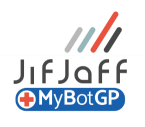Primary care services within the NHS play a crucial role in delivering essential healthcare, acting as patients’ first point of contact. However, the sector faces considerable challenges due to outdated systems, expansive patient lists, the increasing prevalence of multifaceted health conditions, and patient data management across divergent systems. Addressing these challenges necessitates innovative, forward-thinking solutions, primarily focusing on integration and automation.
The Current Landscape:
Healthcare professionals in primary care navigate colossal volumes of patient data daily, often spread across disparate, antiquated systems. This fragmentation impedes the smooth flow of crucial patient information, affecting the efficiency and quality of care provision. Additionally, the ever-growing patient lists with escalating health complexities demand more refined, efficient approaches to data management and healthcare delivery.
A Dual Approach to Resolution:
- System Integration: By interconnecting diverse systems (Acute/Primary Care/Community Pharmacy/Patient Mobile Apps), primary care services can manage patient data more cohesively and efficiently. Integrated systems facilitate real-time access to comprehensive patient information, improving the accuracy of diagnoses and treatments. It also enables seamless communication between healthcare levels, fostering coordinated and personalised care.
- Automation of Repetitive Tasks: Embracing automation for routine administrative tasks can significantly enhance operational efficiency. Automation can handle tasks that do not necessitate human intervention, such as scheduling appointments, managing patient recalls, sending reminders, filing blood tests, repeating prescriptions, recalls LTC, and filing, freeing medical professionals to focus on more nuanced, patient-centric aspects of care.
The Benefits of Integrated and Automated Solutions:
Enhanced Data Accessibility and Accuracy:
Integrated systems ensure that accurate, up-to-date patient information is readily available to healthcare providers, reducing the risks associated with data discrepancies and outdated information.
Optimised Time Management:
Automation of mundane tasks enables healthcare professionals to allocate more time to direct patient care and address the growing demands stemming from growing patient lists and increasing health complexities.
Improved Patient Care:
Integrating system integration and automation empowers healthcare providers to deliver more precise, efficient, and individualised care, improving patient outcomes and satisfaction.
Increased Cost Efficiency:
Streamlining processes through integration and automation can save substantial costs by reducing manual errors, administrative workload, and operational inefficiencies.
Implementing Integrated and Automated Solutions:
Implementing integrated and automated solutions should be a strategic priority for primary care services within the NHS to adapt and thrive amidst the ongoing challenges.
- Comprehensive Assessment and Planning: Initiating a thorough analysis of existing systems, workflows, and requirements can help devise a tailored integration and automation strategy. Identifying areas that will benefit the most from automation and pinpointing the systems that need integration are crucial steps in the planning phase.
- Stakeholder Engagement: Involving healthcare professionals, administrative staff, and IT specialists from the outset ensures the development and implementation of solutions that are user-friendly, efficient, and effective. Gathering insights from end-users can aid in addressing practical needs and challenges effectively.
- Regular Monitoring and Evaluation: Post-implementation, it’s vital to monitor the performance of integrated and automated systems regularly. Evaluating the impact on time management, cost efficiency, data accuracy, and patient care will help make necessary adjustments and enhancements.
Navigating the modern challenges of primary care in the NHS necessitates a blend of innovative integration and automation. By amalgamating disparate systems and automating routine tasks, primary care services can experience enhanced efficiency, improved patient care quality, and significant time and cost savings. The integration and automation of primary care processes are not just technological upgrades; they are strategic advancements reinforcing the NHS’s commitment to delivering exceptional, patient-centred care in the face of evolving healthcare demands.
Final Thoughts:
The transformation of primary care through integrated and automated solutions is a journey towards a more resilient, responsive, and patient-friendly healthcare system. By embracing these innovations, the NHS can ensure that primary care services are well-equipped to meet the population’s diverse and growing healthcare needs, offering a beacon of hope for a healthier, more harmonious future.
JifJaff offers a fully managed and scalable solution for NHS Primary Care. Our team of experts handle all processes from implementation to maintenance, allowing you to focus on what matters most – your business! Our solution grows with you from practice, or large ICS with complex needs, we adapt to meet your requirements. With our comprehensive solutions, you can save time, reduce costs, and streamline your operations knowing you are fully supported. Primary care, NHS
